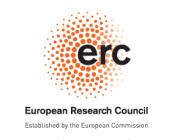Date:
Location:
“World War II in an Age of Globalization
A Reappraisal”
November 22-24, 2015
Beit Maiersdorf Faculty Club, room 502
The Hebrew University of Jerusalem,
Mount Scopus Campus
Sunday, November 22, 2015
09:00-09:30
Greetings
Moshe Sluhovsky, Head
Department of History
Introduction
Dan Diner, Principal Investigator
ERC Project “JudgingHistories”
SESSION I: Japanese Wars
Chair: Iris Nachum
09:30-12:00
Meron Medzini, Jerusalem
The Manchurian Incident 1931:
Great Powers’ Responses
Stuart D. Goldman, Seattle
Nomonhan, 1939:
A Soviet-Japanese War and its Repercussions
11:00-11:15 - Coffee break
Ben-Ami Shillony, Jerusalem
A Part or Apart:
The Sino-Japanese War 1937-1945 and World War II
12:00-13:30 - Lunch break
13:30-15:00
Jean-Louis Margolin, Marseille
A European-Asian Entanglement:
France’s Defeat and Japan’s Choices, 1940
Marcel Boldorf, Lyon
The Quest for Hegemony:
German and Japanese Economic New Orders
15:00-15:30 - Coffee break
SESSION II: Between Axis and Allies
Chair: Lutz Fiedler
15:30-18:00
Arnold P. Kaminsky, Long Beach
Friction in South Asia:
India in Anglo-American Affairs
Rotem Geva, Jerusalem
The Enemy’s Enemy:
Subhas Chandra Bose and the Indian National Army
17:00-17:15 - Coffee break
Janam Mukherjee, Toronto
The Hunger Front:
War and Starvation in Bengal
Monday, November 23, 2015
SESSION III: Palestine in War
Chair: Kobi Kabalek
09:00-10:30
Alon Kadish, Jerusalem
The Mandate at War:
The Home Guard Comes to Palestine
Hadas Fischer, Tel Aviv/New Haven
The “Blitz” in Hebrew:
Mirroring the Imperial Metropolis
10:30-11:00 - Coffee break
11:00-12:30
Keynote Lecture
Michael Geyer, Chicago
Mapping the Geopolitics of
World War II: A Reappraisal
Chair: Kobi Kabalek
12:30-14:00 - Lunch break
- Excursion -
Tuesday, November 24, 2015
SESSION III (continued): Palestine in
War
Chair: Kobi Kabalek
9:00-10:30
Mustafa Kabha, Ra’anana
In Face of Fascism and Nazism:
The Arab-Palestinian National Movement, 1925-1945
Yoav Gelber, Herzliya
The Yishuv’s Perspective:
El-Alamein in History and Memory
10:30-11:00 - Coffee break
SESSION IV: Trials and Judgements
Chair: Samir Ben-Layashi
11:00-12:30
Takashi Yoshida, Kalamazoo
The “Rape of China”:
Nanking in History and Memory
Akiko Takenaka, Lexington
Politics of Enshrinement:
War Dead and War Criminals in Japan
12:30-14:00 - Lunch break
14:00-16:30
Chair: Rotem Geva
Daqing Yang, Washington
Refracting War Atrocities:
Asian, Pacic, and European Constellations
Milinda Banerjee, Kolkata
The Tokyo Trial Revisited:
Reecting Racial and State Violence
15:30-15:45 - Coffee break
Ran Zwigenberg, University Park, Pennsylvania
Holocaust and Hiroshima:
The Emergence of Global Memory
17:00-18:30 Concluding Remarks
Gerhard L. Weinberg, Chapel Hill
Chair: Lutz Fiedler
What does it mean to write a history of World War II in the age of globalization? Can one
bring histories and memories associated with the war in continental Europe together with the
experiences in East Asia or North Africa? Meeting the challenge of composing such an
encompassing history of World War II, the conference brings two essentially important
aspects into focus: first, topographically to interrelate the two theaters of war – the European
continental and the Asian-Pacific domain. Second, to scrutinize and probe into the memories
of war and the discourses that emerged in retrospect.
The first endeavor will allow exploring the range and scope of the war’s global character,
while highlighting differences and frictions in alliances – i.e. reconsidering the history of
events. The second inquiry will open up questions of judgment concerning the character of
violence, death, and suffering executed and sustained, evoking morally permeated discourses
of comparison, analogy, and meaning. While the Holocaust emerges at the center of European
continental moral and historical understanding and judgment, signifying a rupture in
civilization, an epistemological crisis in understanding, so to speak, the exigent question
arises as to whether Western categories of historical comprehension may claim universal
validity.
Topographically, the conference will privilege queries of entanglement and paradoxical
constellations which have been less attended to in the European master narratives of WWII.
Considering a “peripheral” perspective for the history of events as especially insightful, the
Japanese intrusion into Manchuria in 1931 will serve as a point of departure, culminating in
the Japanese-Soviet border war in summer 1939 and its European repercussions, arriving
eventually at the division of the war’s two theaters: the European-continental and Asian-
Pacific. Proceeding from the “rape” of China, the fall of Fortress Singapore in 1942 will allow
focusing on British India as a conflicting political environment where Allied war efforts and
anti-colonial struggle mesh in a paradigmatic constellation. That will open a window onto
insightful continuities leading from the war to the post-war era of decolonization. From India
the gaze will range on to the Middle East and North Africa, where the British imperial
strategy will require special concern – entangling exertions in the struggle against the Axis
Powers and the imperial-colonial presence in the region. Special consideration will be given
to the battle of El-Alamein, the fate of Jewish-Palestine and the perceptions of Arab public
opinion in real time as well as in retrospect.
Epistemologically, the conference intends to focus on questions of historical comprehension
and moral judgment. Core issues are iconic events which have inscribed themselves into
universal memory as well as into particular memorial cultures, mostly of a contested
character. Embarking from the Jewish Holocaust as a foundational event in European and
Western perception as ultimate evil, other events claim an iconic meaning of suffering and
disaster. This relates to the Japanese “art of war” in East Asia, especially in China, the
calamitous famine in Bengal, caused by natural circumstances and the blunder of British
colonial policy. Furthermore, the French case during and after the war, could add to complete
the reappraisal of WWII and its aftermath in the colonial and postcolonial environment.
| Conference Program | 221 KB |

